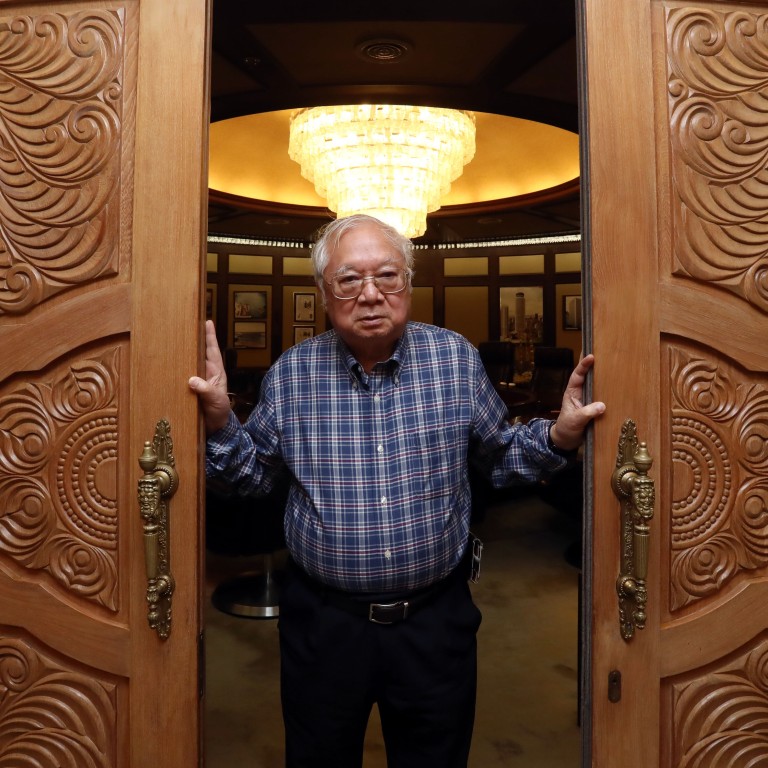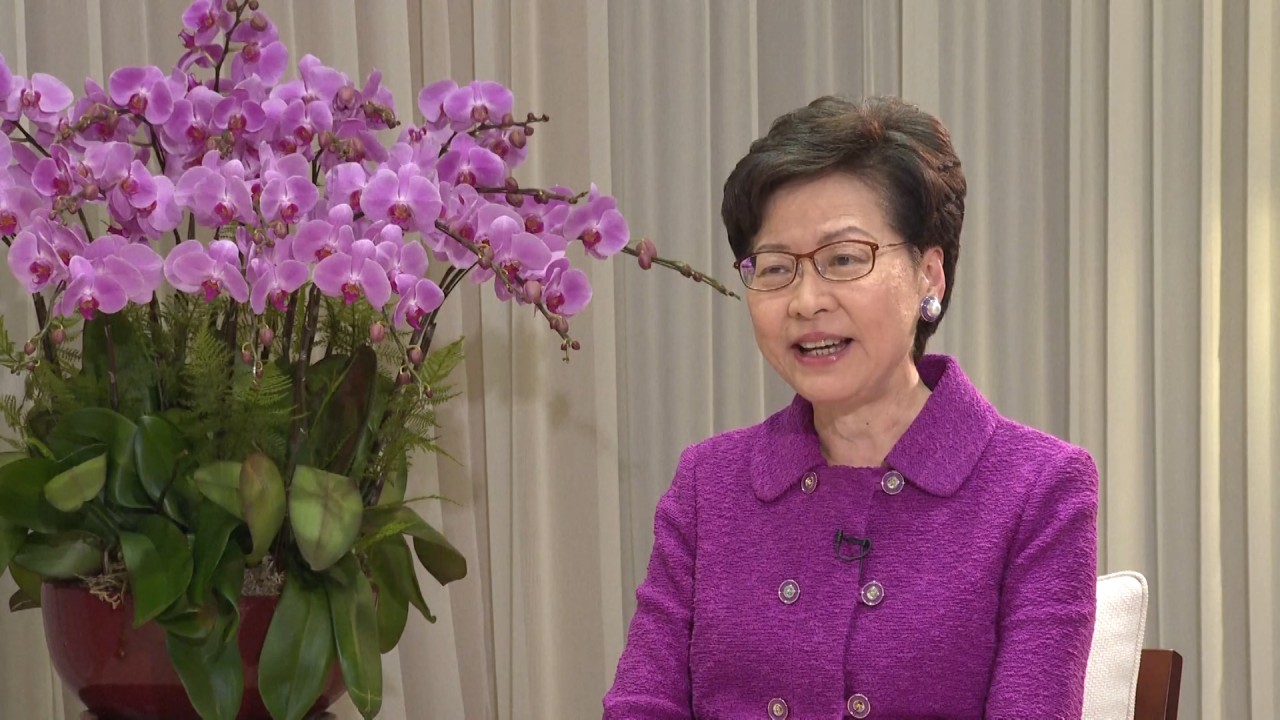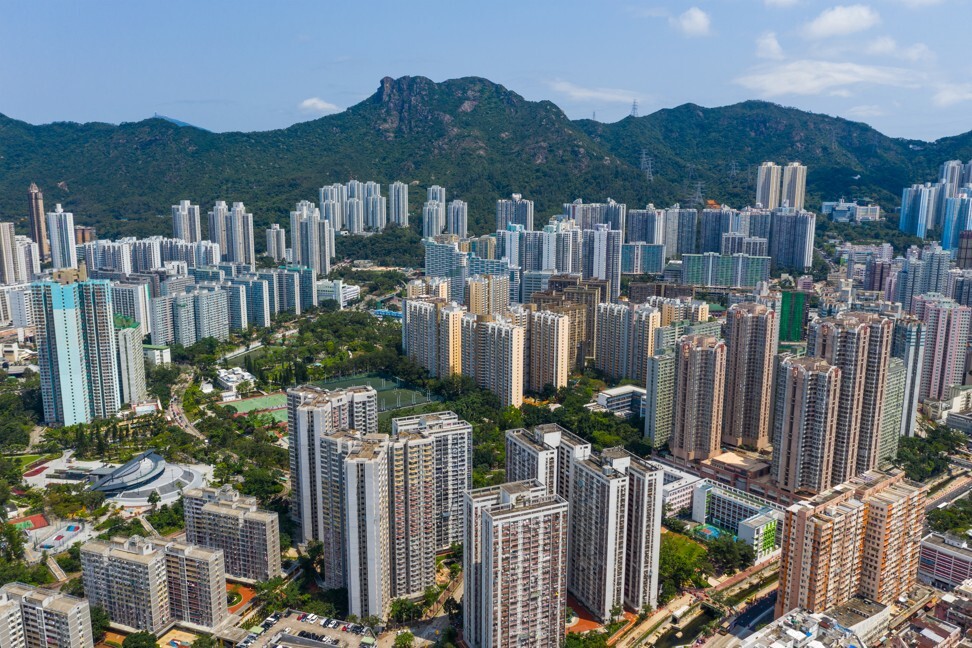
Fix Hongkongers’ livelihood and housing woes and all will be well, tycoon Gordon Wu tells city’s leaders
- Outspoken billionaire says Hong Kong will remain hard to run if key problems aren’t addressed
- City has been ‘stuck for years’ because leaders weren’t firm in rejecting opposition to their plans
“I was the first to speak,” said the 85-year-old chairman of Hopewell Holdings, one of only two property developers in the select group of about 30 invited to the seminar chaired by Xia Baolong, head of the State Council’s Hong Kong and Macau Affairs Office.
Shaken by Beijing’s plans, Hong Kong’s opposition camp considers next move
The outspoken billionaire has enjoyed a close relationship with Beijing over the decades. He was among the first Hong Kong businessmen to invest in the mainland after China introduced economic reforms and opened up the country from 1978.
Wu said the central government cared a lot about Hongkongers’ livelihood problems, especially their housing woes, adding that he agreed the city’s unaffordable housing, tiny living spaces and the shortage of land were sources of frustration for most people.
He placed the blame for Hong Kong’s stagnant conditions squarely on the city’s chief executives, pointing to their lack of determination and ambition, and especially their “misconception” of democracy.
“Those in power have long misunderstood democracy,” he said, making clear he meant the city’s leaders could have been more firm in taking action and rejecting opposition to their plans.
“We gave many people the right to veto whenever there was opposition to policies, but the government dared not exercise its power and make bold decisions,” he said. “That’s why we have been stuck for so many years. The government can consult, but should also be able to make decisions.”

02:40
‘We do not want unpatriotic people in our political system,’ says Hong Kong leader Carrie Lam
He also had a response for those who compare Hong Kong’s freedoms with the situation on the mainland.
“Some say, ‘Oh, the mainland does not have democracy’,” he said. “I won’t comment on that, but at least people have better living conditions and better housing there. When people are making a good living and are content, there will not be revolutions.”
“There is a lot of talent in the city, but I am not sure who will be willing to sacrifice and take up the post. The job is tough,” he added.

Wu did not comment on Beijing’s moves to shake up Hong Kong’s elections system, preferring to dwell on the issue of the shortage of land for housing.
“Some developers have criticised me for calling for more land to be released for housing, as this may lower property prices, but I am speaking for the good of Hong Kong,” he said. “Most working-class people in Hong Kong cannot afford a home and that’s a serious problem.”
Hong Kong lawmakers under pressure from Beijing to resolve housing crisis
His Hopewell Holdings is known for residential and commercial property developments in the city, as well as investments in infrastructure projects, property letting and hotel operations in Hong Kong and mainland China.
Unlike other tycoons who offered some of the land to the government, especially after state media attacked and blamed them for Hong Kong’s skyrocketing property prices, Wu believes it is the government’s responsibility to ensure a steady land supply.

He said other options to improve land supply, such as rezoning or land resumption in the New Territories, would only affect people in the neighbourhood adversely while yielding piecemeal quantities of land which would not resolve the city’s housing problems.
But Wu is impatient with the pace of progress on the Lantau project, which city leader Lam unveiled in her policy address in 2018, when her administration estimated a shortfall of at least 1,200 hectares for future development.
Will Hong Kong’s biggest-ever reclamation project solve its housing woes?
Wu said the delays and massive cost betrayed the ineffectiveness of the city government.
“Just the cost for the adviser was HK$550 million, which must be the highest compared to projects in Singapore, Shenzhen or Macau,” he said. “The government should learn to be smart and save costs.”
He preferred holding an open tender to allow big developers to participate in reclamation based on fair competition. The developers could assist with reclamation while being rewarded with land.
“Only those with the capability will get the tender, and the government will gain land and save costs,” he said. “The government should let go of the old methods, set a time frame and work hard on it.”

